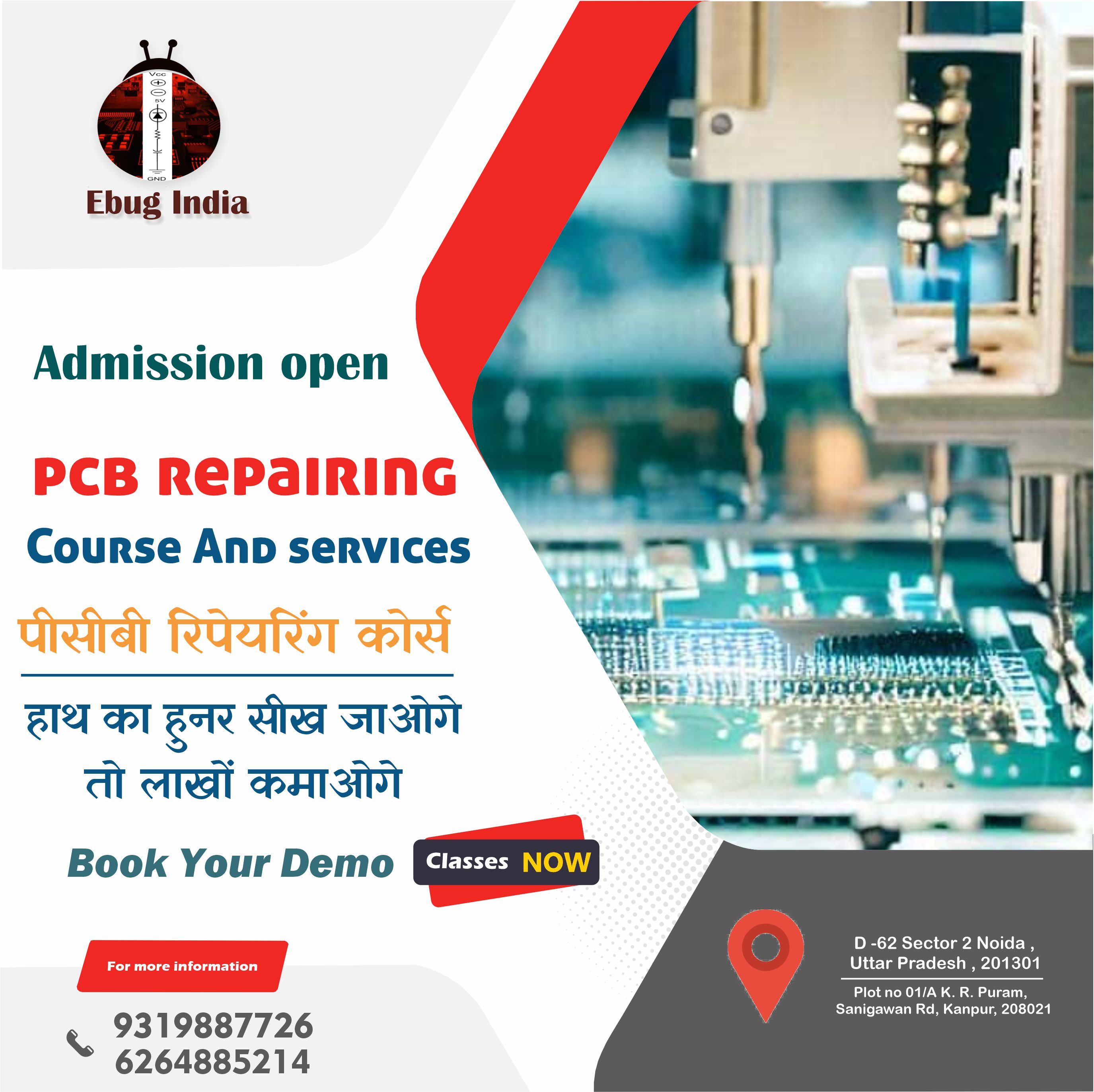PCB Repairing Course in Kanpur: Gateway to a Rewarding Career
In the digital age, printed circuit boards (PCBs) form the backbone of virtually all electronic devices. As the demand for electronics continues to surge, so does the need for skilled PCB repair technicians. Kanpur, an educational and industrial hub, offers excellent opportunities for those interested in PCB repair courses. This blog delves into the importance, curriculum, and career prospects of PCB repairing courses in Kanpur.
The Importance of PCB Repair Skills
PCBs are the heart of electronic devices, from smartphones to industrial machines. When these boards malfunction, the entire device can fail. Skilled PCB repair technicians are crucial in diagnosing and fixing these issues, ensuring the longevity and functionality of the electronics. By enrolling in a PCB repairing course, individuals can:
- Enhance Technical Skills: Gain in-depth knowledge of PCB components and repair techniques.
- Improve Job Prospects: Enter a growing job market with high demand for qualified PCB repair technicians.
- Start a Business: Offer specialized repair services and cater to a niche market.
- Reduce E-Waste: Promote sustainable practices by repairing rather than replacing PCBs.
Overview of PCB Repairing Course
A PCB repairing course in Kanpur is designed to provide comprehensive practical and theoretical knowledge. Here’s what the course typically includes:
1. Introduction to PCBs
- History and Evolution: Understanding the development and importance of PCBs in modern electronics.
- Types of PCBs: Learning about single-layer, double-layer, and multi-layer PCBs and their applications.
2. Basic Electronics and Components
- Electronic Fundamentals: Covering basic concepts such as voltage, current, and resistance.
- PCB Components: Detailed study of components like resistors, capacitors, transistors, diodes, and integrated circuits.
3. PCB Design and Manufacturing
- Design Software: Introduction to PCB design software such as Eagle, Altium, and KiCAD.
- Manufacturing Process: Understanding the steps involved in PCB fabrication.
4. Common PCB Issues and Troubleshooting
- Visual Inspection: Techniques for identifying physical damage, such as burnt components or broken traces.
- Testing Tools: Using multimeters, oscilloscopes, and other diagnostic tools to test components and traces.
- Common Problems: Diagnosing and fixing issues like short circuits, open circuits, and faulty components.
5. Advanced Repair Techniques
- Desoldering and Soldering: Mastering the skills of removing and replacing components using soldering tools.
- Trace Repair: Techniques to repair broken traces using conductive ink, wire jumpers, or copper tape.
- Component Replacement: Replacing damaged components with new ones and ensuring proper functionality.
6. Safety Protocols
- Personal Safety: Proper use of safety gear and adherence to safety guidelines.
- Handling ESD: Understanding electrostatic discharge (ESD) and measures to prevent it.
Career Opportunities
Completing a PCB repairing course in Kanpur opens up various career opportunities:
- PCB Repair Technician: Work in repair shops or service centers, providing PCB repair and maintenance services.
- Electronics Technician: Broaden your skills to work on various electronic devices and systems.
- Quality Control Inspector: Ensure the quality and functionality of PCBs in manufacturing units.
- Entrepreneur: Start your own PCB repair business, catering to local or global clients.
Conclusion
A PCB repairing course in Kanpur equips individuals with essential skills needed to succeed in a rapidly growing industry. With a blend of theoretical knowledge and practical training, these courses prepare students to handle real-world challenges and advance their careers. Whether you’re looking to join an established company or start your own business, acquiring expertise in PCB repair can open the door to numerous opportunities


Comments (0)